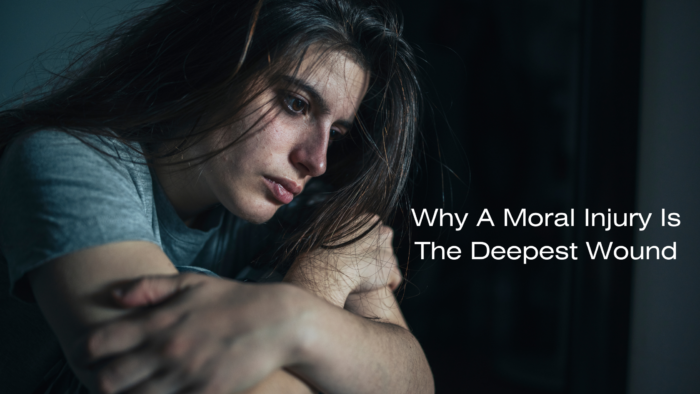By Donna Hoffmeyer
(original post on Medium, Taking Off The Armor)
“So, Jim went over to his apartment and took the guns.”
I was talking to a spouse of an ill service member. We were discussing guard service members and their struggles with medical care. She brought up their neighbor, who they recently noticed was mentally struggling.
“My husband has always been there for Jim. Really good guy. Recently we noticed he was withdrawn, and we didn’t see much of him. Jim went over to check on him, and found him sitting on the couch, looking at his gun he laid on the coffee table. He opened up to Jim a little and told him he was having a hard time. He agreed with Jim it would be safer if Jim took his guns out of the apartment. We’ve been holding them for a month.”
“Who’s his commander? Is he aware?”
“I’m not sure. I’ll ask Jim.”
“Have them give me a call.”
“Okay.”
*******************************************************************
“Ma’am, do you have a minute to talk? I need guidance.” The voice at the end of the line sounded stressed.
I was happy when I realized I knew the service member’s commander. “Hi Marc, I was hoping you would call. Are you aware of what is going on with Brett?”
“Yes, I’ve been trying to get him help, but I keep on hitting one wall after another.”
“Can you tell me his story, so I have a better idea of what direction we need to go in?
“Sure. He was receiving a medal for his KIA (kill in action) and pretty much decompensated afterward. He told people he doesn’t understand why someone would receive an award for killing another human.”
*******************************************************************
This is not only a real scenario, but it is more common than many people realize.
Not long after I retired from the military a friend with three-letter entity connections (e.g. NSA, FBI, CIA, DHS, etc…) told me there were jobs available there he would gladly recommend me for if I applied. However, he encouraged me to assess what my level of moral flexibility was before I applied. Yeah, I chose to stick with writing blog posts on my military life. My moral flexibility had been challenged enough for my taste during my military days.
However, when one feels they have gone past challenges, and stepped over the boundary of their values, that is when a moral injury can occur.
Moral injury is one of the deepest wounds a person can experience. By definition, it is a social, psychological, and spiritual harm that arises from a betrayal of one’s core values, such as justice, fairness, and loyalty.
The risk for moral injury is very high in the military. We are put in situations where we question if we are on the right or wrong side of what is just, and sometimes there is no time to determine if it lines up with our core values.
How does one rationalize shooting a child, even if he is pointing a gun at you?
How does one rationalize bombing a terrorist’s innocent family, making them casualties of war, even if the terrorist had been responsible for injuring and killing 100s of troops?
How does one justify bringing a maimed child back to health, and then sending them to a family that will reject him for failing his suicide bombing mission?
How does one go home to their family at night, after their drone mission was responsible for the loss of innocent victims, during the task to neutralize the target?
The mind struggles with incongruencies.
I was having a discussion with a friend and Veteran about the balance of dualities — good/evil, light/dark, and how one cannot exist without the other. He commented, Even good left unchecked, will itself become evil out of its desire to be good.
That resonated so hard with me. Our Veterans’ suffering is the “evil”; putting service before self; the result of completing the mission without fail. It is justified as good, as protecting their country, protecting people in another country from terrorists, or even their government…stopping the bad guys. We romantically call them silent warriors, unsung heroes, and patriots. We shake their hands and thank them for their service.
Their minds, however, struggle to justify extinguishing human life. They look at the child holding a gun, thinking of their child, and wonder how someone could exploit such innocence; while simultaneously trying to process who will pay the ultimate sacrifice if they do not respond appropriately.
How does one rationale killing what is instinctual to protect?
It is having to remind oneself the task is to take out targets and attempt to forget the target is a human being with a story, a family, and a life.
It is walking into your first/second/tenth mass casualty, having to prioritize care for the person with the best chance of survival versus the person with the worst injuries, and locking away the thoughts of the families that will lose their loved one, simply because there are not enough resources.
It is trying to conceptualize the idea of harming to justify good.
It reminds me of the book We Were Soldiers Once and Young. They made a movie too…but the book is by far better. The focus was on the battle of Ia Drang during the Vietnam conflict. However, there was another piece that the summaries do not discuss. It was also about two commanders, on each side of the conflict, with the same intention of protecting their own, and outwitting the other side, at any cost. When you look at it from that perspective it is difficult to determine who is doing good and who is doing harm. (Interestingly, many years after the war ended, the two commanders met…as friends.)
Left untreated, moral injury has a strong correlation to PTSD severity, anxiety, depression, and suicide. Keep in mind, not everyone that has a moral injury has PTSD, and those with PTSD, do not necessarily suffer from a moral injury. However, they do often overlap. The difference between the two is that moral injury comes with shame and guilt.
For this reason, it is often hard to uncover and treat the root cause. They are leery to share for fear of being judged. In turn, the moral injury is never addressed; leaving the service member/veteran to continue to struggle, even with treatment for PTSD.
Even though moral injury is relatively new in exploration, many trial treatments are going on. Below is a list with links to clinical trials or general information on the topic. Currently, PTSD treatments (Prolonged Exposure and Cognitive Processing Therapy) have been utilized to assist in the treatment of moral injury.
Acceptance and Commitment Therapy (adapted for moral injury)
Impact of Killing Intervention
Trauma Informed Guilt Reduction Therapy
For family and friends, please do not give up on your loved one. They need support more than ever. It is not for you to know about the cause of the moral injury. In reality, it may be too painful to share with you, and you may never hear the story. That. Is. Okay. None of us want to relive a bad nightmare we had because we watched a scary movie, much less a real-life nightmare we witnessed/survived/lived through. Just love them, support them, and help them find resources when they feel they are ready.
For our veterans suffering a moral injury, you are not a bad person. You did your best to survive a traumatic event. You are our brother and sister-in-arms. We’ll always have your back. You are respected, honored, and loved.


